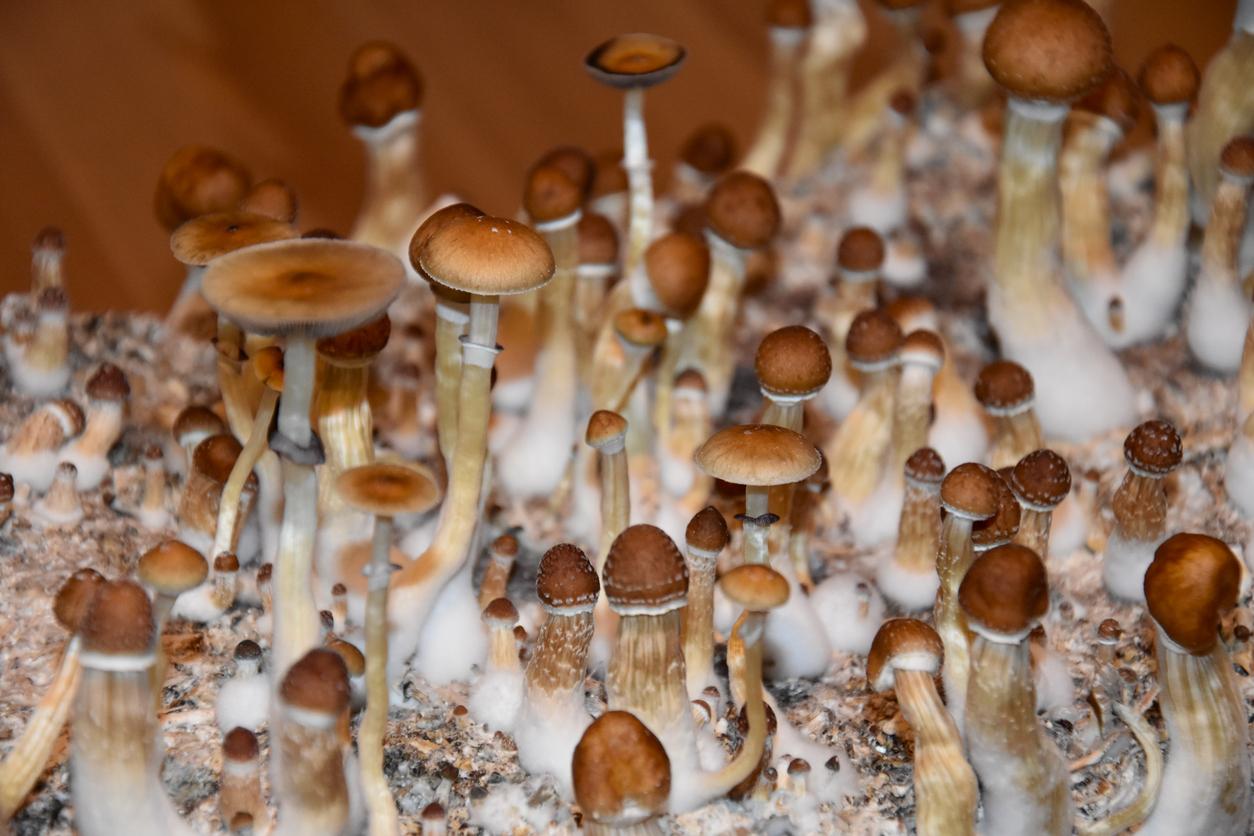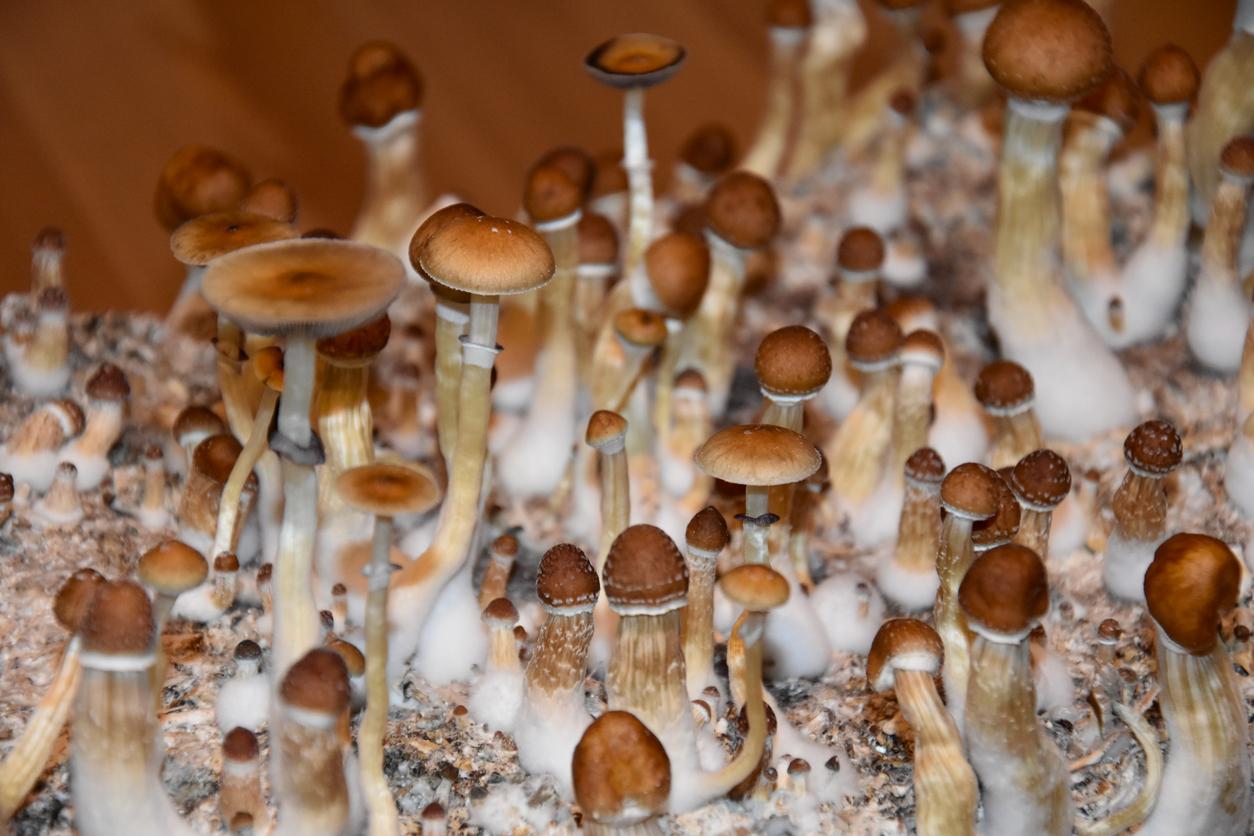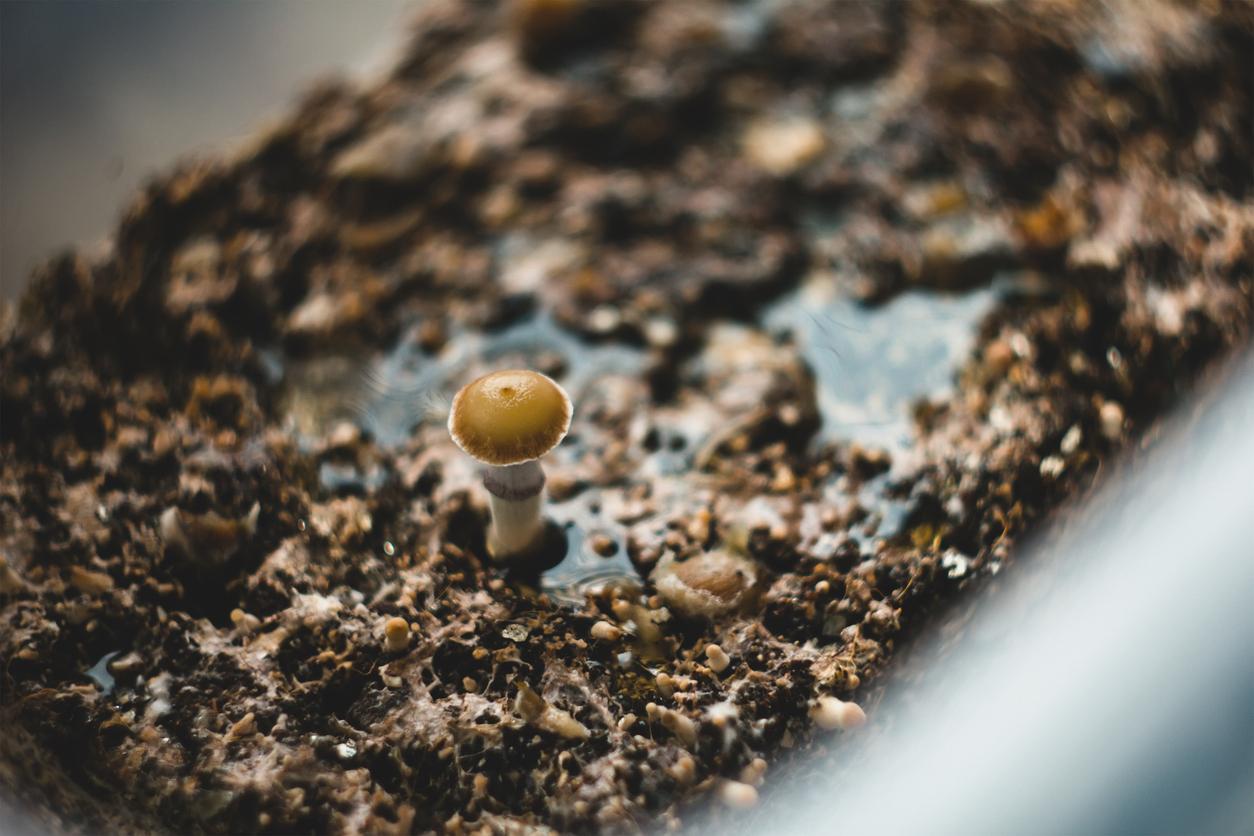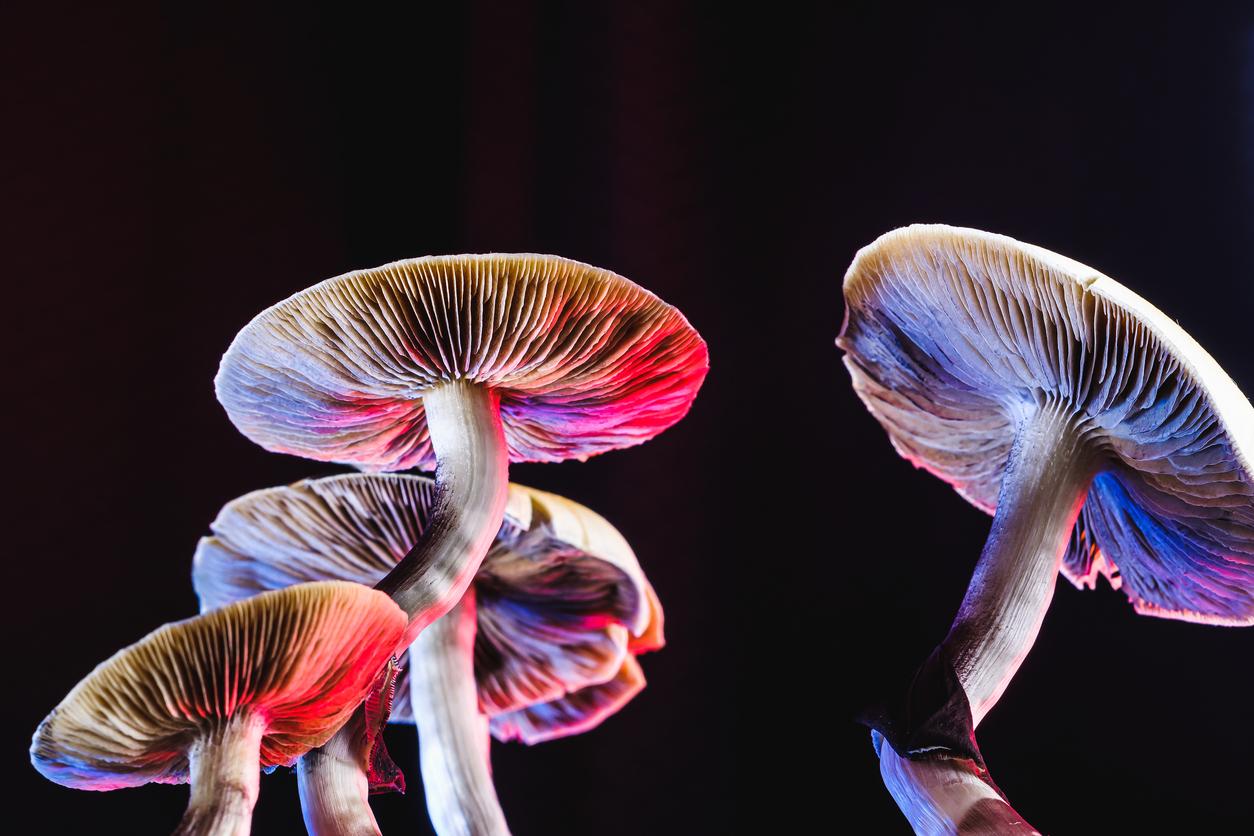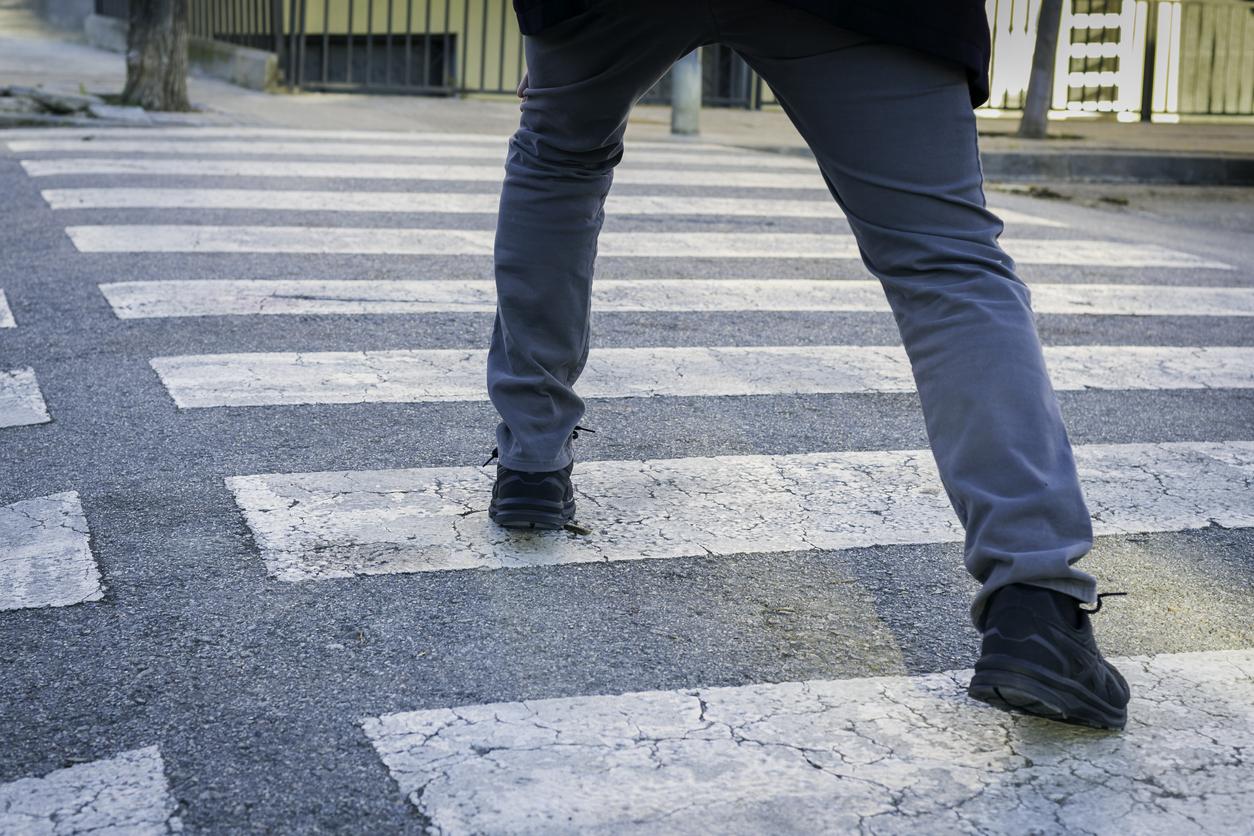Researchers have highlighted the potential of psilocybin, increasingly tested as an alternative therapy, to treat obsessive-compulsive disorder (OCD) and Tourette’s syndrome.
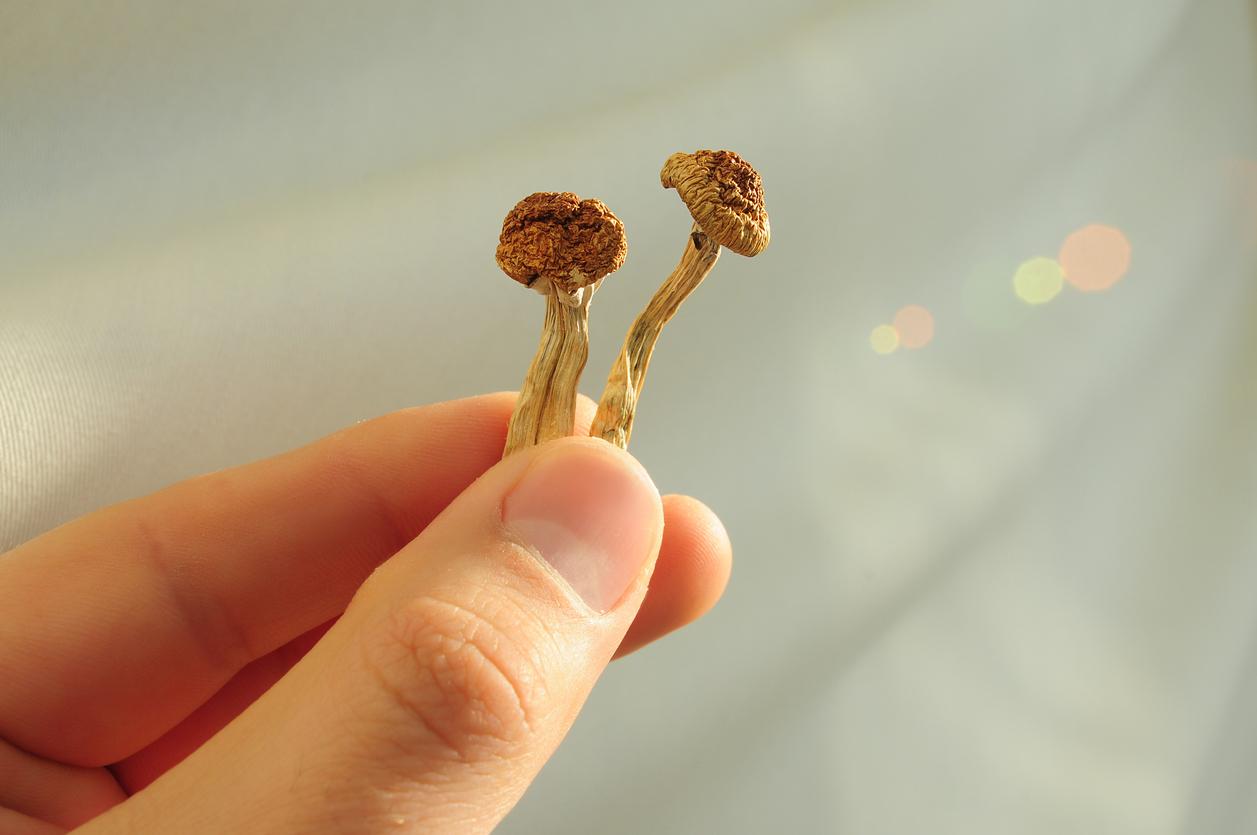
- Study finds that psilocybin, the active compound in magic mushrooms, may reduce symptoms of OCD and Tourette syndrome.
- Tested on mice exhibiting compulsive behaviors and tics, a single dose of psilocybin reduced these symptoms and anxiety for up to seven weeks.
- These results highlight the potential of psilocybin to treat patients with psychiatric disorders that do not respond to current treatments.
They would help fight addictions, depression, diabetes and even loss of sexual appetite: the therapeutic virtues of psychedelics, such as psilocybin, the active compound in magic mushrooms, are increasingly documented by science. A new study led by Hadassah-Hebrew University Medical Center in Jerusalem now shows promising results regarding their use to treat certain complex psychiatric disorders, such as obsessive-compulsive disorder (OCD) and Tourette’s syndrome.
Psilocybin reduces compulsive symptoms in mice
As part of their work, published in the journal Molecular Psychiatryresearchers observed 50 mice genetically engineered to exhibit compulsive excessive grooming behaviors, similar to the compulsions of OCD patients. They also displayed jerky movements reminiscent of the tics characteristic of Gilles de la Tourette syndrome. The rodents were randomly divided into three groups: one received a single dose of psilocybin, another a dose of psychedelic mushroom extract, and the last a placebo.
After three weeks, results showed that psilocybin reduced excessive grooming behaviors by 14.60%, and the mushroom extract reduced these behaviors by 19.20%. In contrast, the placebo group saw a marked increase in these symptoms. In addition to reducing the number of compulsions, treatments with psilocybin and magic mushroom extract also reduced other symptoms like tic movements and anxiety – beneficial effects that lasted for up to seven weeks in some mice.

40% of OCD patients do not respond to current treatments
Professor Bernard Lerer, who led the study, underlines the importance of these findings, recalling that more than 40% of patients suffering from OCD do not respond to current treatments. The effects observed on the tics of mice also suggest a potential for treating Gilles de la Tourette syndrome, hitherto little explored with psilocybin. “Our results open the way to new therapeutic possibilities for these patients”says the specialist in a press releasewhile emphasizing the need to continue research and conduct clinical trials on humans.
According to the National Institute of Health and Medical Research (Inserm), a double-blind study was notably started in the United States, at Yale University, to evaluate the effect of psilocybin and describe its mechanisms of action in around thirty volunteers suffering from OCD. The institute also recalls that the presence of a health professional to ensure the physical and psychological well-being of the patient, during and after treatment, is “unavoidable”. “Even if the effects of these substances one day prove to be clearly beneficial, with numerous other studies confirming the first promising results, the idea is definitely not to generalize the taking of psychedelics like that of an aspirin.”










